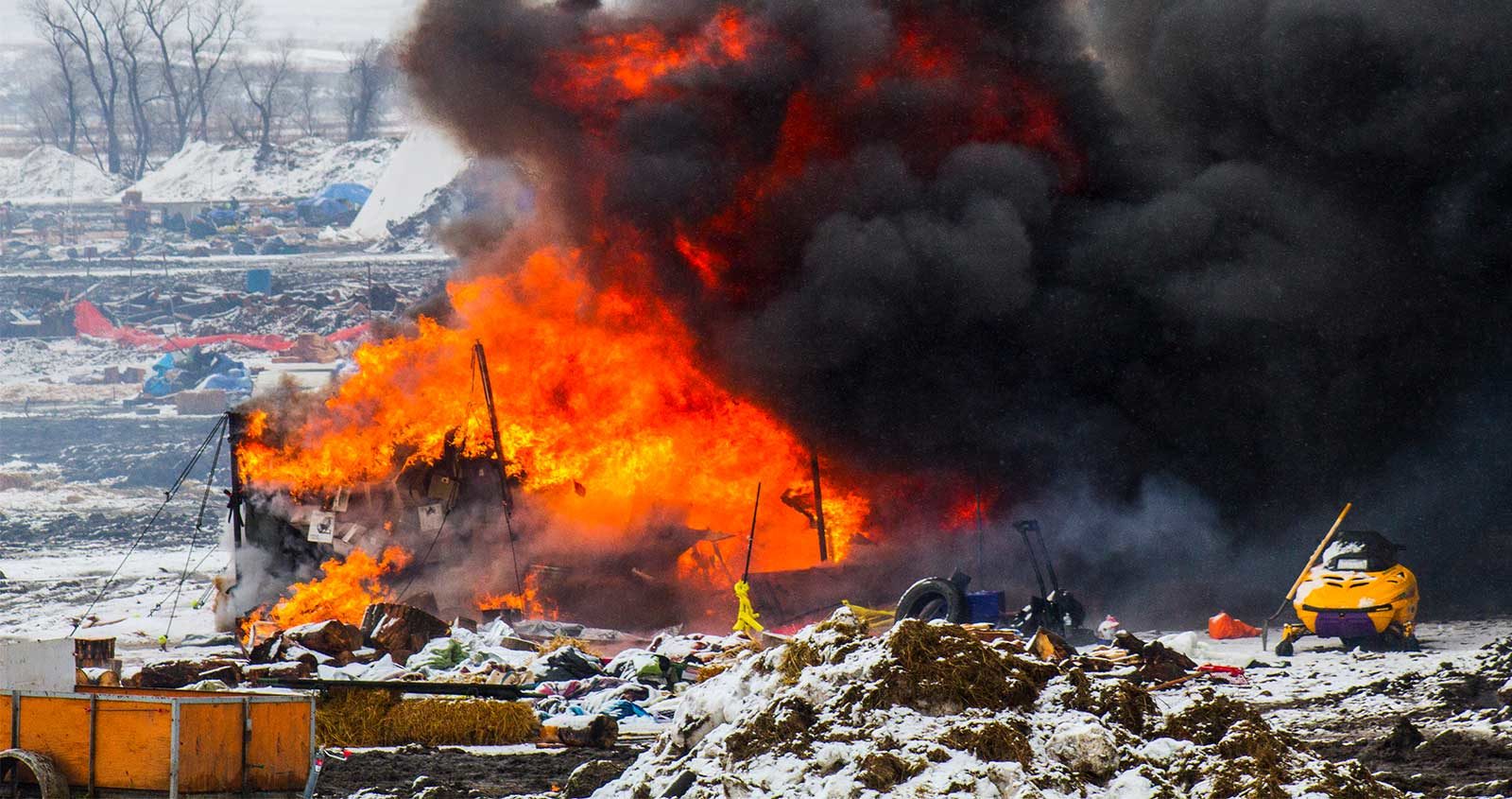In the early afternoon on Thursday 24 February, the Oceti Sakowin camp in North Dakota was officially shut down, with dozens arrested in a final stand against the Dakota Access Pipeline project.
Many protesters left peacefully on the evacuation deadline of Wednesday afternoon, some lighting ‘ceremonial’ fires in their wake. Those who stood their ground were met with bulldozers and heavily armed officers in riot gear.
Officials said that 46 individuals were arrested in the clear-out of the camp.
“A veterans’ group occupying a tent refused to leave voluntarily, saying they would not be violent, but they would only go with passive resistance, therefore law enforcement had to carry them out,” the North Dakota Joint Information Centre told the US’ ABC News.
The Standing Rock Sioux Tribe and thousands of others had been protesting the portion of the $3.8b pipeline, set to stretch underneath Lake Oahe in North Dakota, which they say will contaminate drinking water and damage sacred burial sites.
PHOTOS: The Final Hours Of A Dakota Access Pipeline Protest Camp https://t.co/fQJtrQYnAL#NoDAPL @POTUS#INDIGENOUS #TAIRP pic.twitter.com/LhSWdQOLO8
— Indigenous (@AmericanIndian8) February 24, 2017
‘We stand in solidarity’
Amnesty International USA was highly active on this case, sending multiple letters to the authorities and urged the acting Secretary of the Army to halt construction of the Dakota Access Pipeline until the Army’s environmental impact review was completed and the consent of the Tribe was sought.
Tammy Solonec, Indigenous Rights Manager at Amnesty International Australia said: “We are very concerned to see the latest developments in the USA against the wishes of the Native Americans and without their free, prior and informed consent.”
“The issue has a strong resonance for Aboriginal and Torres Strait Islander people, and we stand in solidarity with the traditional owners.”
The last hope of The Standing Rock Sioux is a case filed in federal court against the Army Corps of Engineers, to which 34 Indian tribes, The American Civil Liberties Union and other organisations have come out in support of. The lawsuit seeks to halt further drilling and until the corps has assessed the full environmental impact.
American Indian activist Chase Iron Eyes said: “The battleground has shifted to the legal courts and the court of public opinion.”
